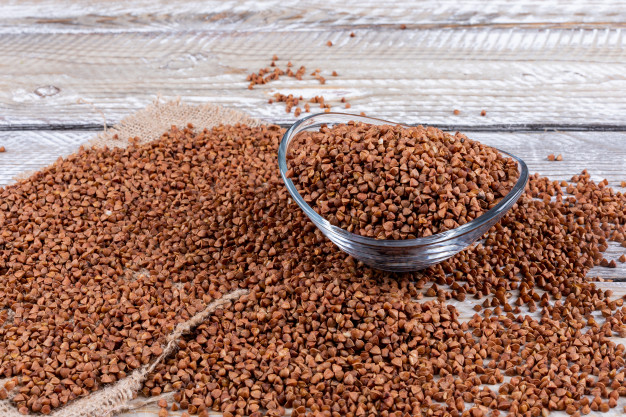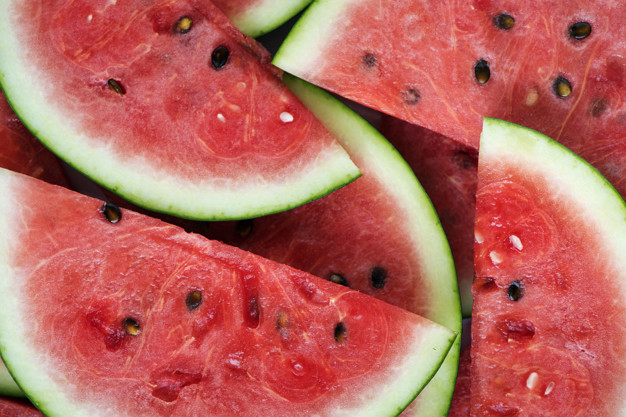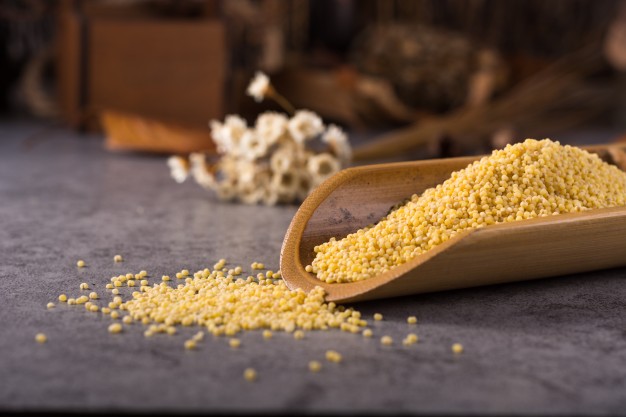Buckwheat is known as a pseudocereal as it does not grow on grasses. This grain is rich in several micronutrients and phytonutrients and exclusively enriched in rutin (an antioxidant), which offer numerous health benefits.
Characteristics
- It has a unique trigonal shape
- It is not grass hence it is not related to wheat, whereas it is related with knotweed, sorrel and rhubarb
- It contains salicylaldehyde, which is responsible for its characteristic aroma
Nutritional significance
It contains various important nutrients, which have profound health benefits.
Below chart will give an overview of the nutritional significance of buckwheat –
Carbohydrate
- It contains desirable amount of carbohydrate especially rich in complex carbohydrate
- It basically comes in the form of starch
- It has medium glycemic index hence its consumption does not increase too much glycemic load
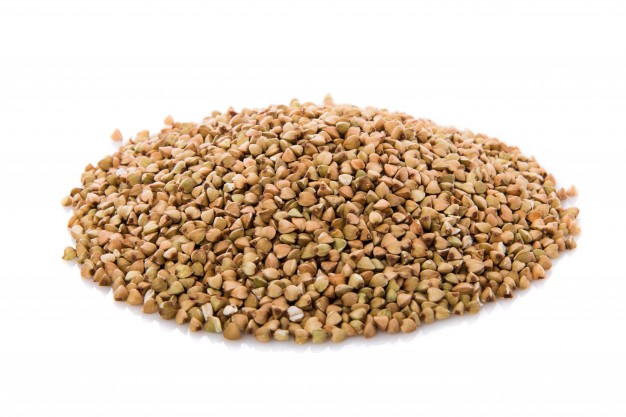
Fibre
- It contains significant amount of soluble and insoluble fibre and especially loaded with lignin and cellulose
- Fibre of buckwheat is also responsible for its flavor
- This fibre content of buckwheat has profound health benefits and helps to promote digestive health and cardiac health
- It reduces the risk of developing diabetes, hypercholesterolemia, constipation and obesity
- It also contains resistant starch in its husk. This resistant starch is fermented by intestinal flora as a result short chain fatty acid is produced (like butyrate). This short chain fatty acid provides proper nourishment to the lining of colon thus promotes colonic health and also inhibits the risk of developing colon cancer

Protein
- It contains lesser amounts of protein but significantly rich in the amino acid arginine
- Though the protein found in buckwheat has lower digestibility as it contains various anti nutritional factors like tannin, protease inhibitor, which interfere with the utilization of nutrients hence it is better to consume buckwheat after eliminating these factors by soaking it for a particular period of time before processing or cooking
- It is also gluten free thus it can be easily consumed by those individual who suffer from celiac disease
- Proteins of buckwheat plays significant role in reducing the risk of developing gall stone
- It also helps to regulate blood cholesterol concentration
Fat
- It contains very less amount of fat and basically contains unsaturated fatty acid
- Its fat content is accountable for proving energy and also exerts cardio protective effects due to the presence of MUFA and PUFA
Micronutrients

- It contains numerous vitamins and minerals and significantly rich in copper, magnesium, manganese, phosphorus, iron and B vitamins
- Copper content is responsible for promoting the synthesis of RBC and also enhances cardiac functionality
- Its magnesium content plays imperative role in boosting up the metabolism and the activity of nervous system. It also helps to decrease the susceptibility of developing metabolic syndrome
- Manganese of buckwheat plays vital role in supporting the overall growth and development of body
- Iron content also helps in the synthesis of RBC and hemoglobin and helps to prevent the prevalence of anemia
- Phosphorus present in buckwheat helps in the growth as well as maintenance of body tissue. It also helps to strengthen the skeletal system of the body
Biological active compounds
- It contains numerous biological active compounds, which include quercetin, rutin, D-chiro-inositol and vitexin. These compounds offer various health benefits
- Quercetin component of buckwheat acts as strong antioxidant and significantly reduces the risk of developing cardio vascular disease and cancers
- Rutin is considered as the principal polyphenol antioxidant of buckwheat plays important role in preventing inflammation, hypertension and it also helps to improve lipid profile
- D-chiro-inositol is an important soluble carbohydrate presents in buckwheat helps in decreasing blood sugar concentration
- Vitexin is another important phytochemical present in buckwheat exhibits numerous health benefits but if vitexin get accumulated in blood (if it is consumed in large amount) then it may cause enlargement of thyroid gland

Role of buckwheat on human health
Effect on skeletal health
- Consumption of buckwheat is very beneficial for strengthening bones and teeth
- Its calcium, phosphorus and magnesium components are accountable for enhancing bone mineral density that helps to decrease the susceptibility of developing bone disorders
Effect on maternal health
- Buckwheat contains several important nutrients that improve maternal health status
- Its protein content plays significant role in the growth and development of maternal tissues
- There is an increase in blood volume occurred during pregnancy and consumption of buckwheat supports this expansion as it contains significant amount of iron and protein, which ultimately stimulates the synthesis of RBC and hemoglobin
- It is also rich in folic acid, which is an important micronutrient essentially required during gestation. It helps in the growth and development of fetal nervous system and it is also related with decreasing the prevalence of birth defects like neural tube defects or cleft lip or clubfoot etc
Effect on cardiac health
- It has potent cardio protective effects. Individual who suffer from cardio vascular diseases or who have a family history of cardiac disorders should consume buckwheat
- Its phytonutrient components play imperative role for promoting cardiac health and functionality
- Its consumption is also very effective for decreasing the prevalence of heart attacks or strokes
- Its fibre content is responsible for decreasing the cholesterol concentration within body hence reduces the prevalence of plaque formation within artery by inhibiting fat deposition hence reduces the risk of developing atherosclerosis
- It is extremely effective for preventing ischemic heart diseases as well


Effect on metabolism
- It contains adequate amount of Vitamin B complex and especially rich in Vitamin B1, which is essentially required by the body for carbohydrate metabolism
- It helps in cellular respiration by promoting the synthesis of ATP
- Its consumption is thus very useful for utilizing carbohydrates properly as it helps the body to use carbohydrate for energy purpose
Therapeutic uses
- It helps to boosting up the immunological responses of the body
- It is very effective for diabetic patient as it is related with decreasing the glucose load in blood. Its glycemic index and fibre content help to stabilize blood sugar level. It is very helpful for decreasing the prevalence of type 2 diabetes mellitus
- It is packed with antioxidant hence its consumption is closely associated with protecting the body from the harm full effects of free radicals
- Its phytonutrient components are also responsible for inhibiting swelling or inflammation
- Its high potassium and low sodium contents are accountable for making it an imperative anti-hypertensive food stuff
- It is extensively used for preventing hair falls as it promotes hair growth

Culinary uses
It can be incorporated in regular diet by several way, which include –
- It can be used to prepare bread
- Roasted buckwheat grout can be added with milk or cream or nuts before consumption
- Pancake can be prepared by using buckwheat
- It can also used for preparing noodles
- Buckwheat flour can be used for preparing paratha
- It can also be added with salads or soups before consumption
General consideration of using buckwheat
- It is better to soak it for some period of time before consumption because soaking helps to eliminate toxins and anti-nutritional factors and also enhances its digestibility
- Overconsumption of buckwheat often causes allergic reaction to some individual. It may also develop various symptoms like swelling, skin rashes and digestive disorders thus it is better to stop the consumption of buckwheat if such symptoms are raised
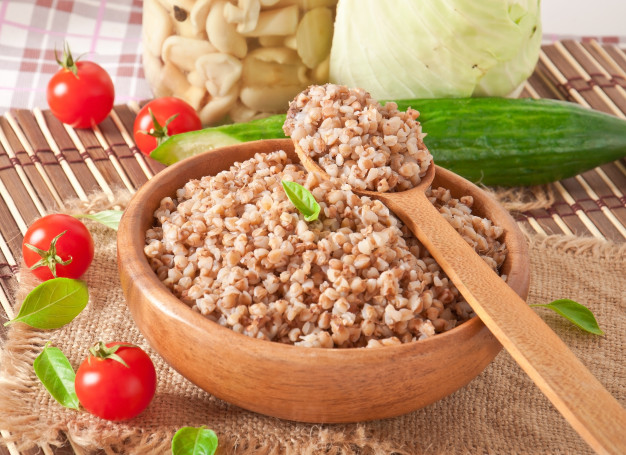
Source:
Ahmed, A., Khalid, N., Ahmad, A., Abbasi, N.A., Latif, M.S.Z. and Randhawa, M.A., 2014. Phytochemicals and biofunctional properties of buckwheat: a review. The Journal of Agricultural Science, 152(3), p.349.
Danihelová, M. and Šturdík, E., 2012. Nutritional and health benefits of buckwheat. Potravinarstvo Slovak Journal of Food Sciences, 6(3), pp.1-9.
Gimenez-Bastida, J.A. and Zielinski, H., 2015. Buckwheat as a functional food and its effects on health. Journal of Agricultural and Food Chemistry, 63(36), pp.7896-7913.
Giménez‐Bastida, J.A., Zielinski, H., Piskula, M., Zielinska, D. and Szawara‐Nowak, D., 2017. Buckwheat bioactive compounds, their derived phenolic metabolites and their health benefits. Molecular nutrition & food research, 61(7), p.1600475.
Kreft, M., 2016. Buckwheat phenolic metabolites in health and disease. Nutrition Research Reviews, 29(1), pp.30-39.
Noreen, S., Rizwan, B., Khan, M. and Farooq, S., 2020. Health benefits of Buckwheat (Fagopyrum esculentum), potential remedy for diseases, rare to cancer: A mini Review. Infectious Disorders Drug Targets.
Zhu, F., 2016. Chemical composition and health effects of Tartary buckwheat. Food Chemistry, 203, pp.231-245.
